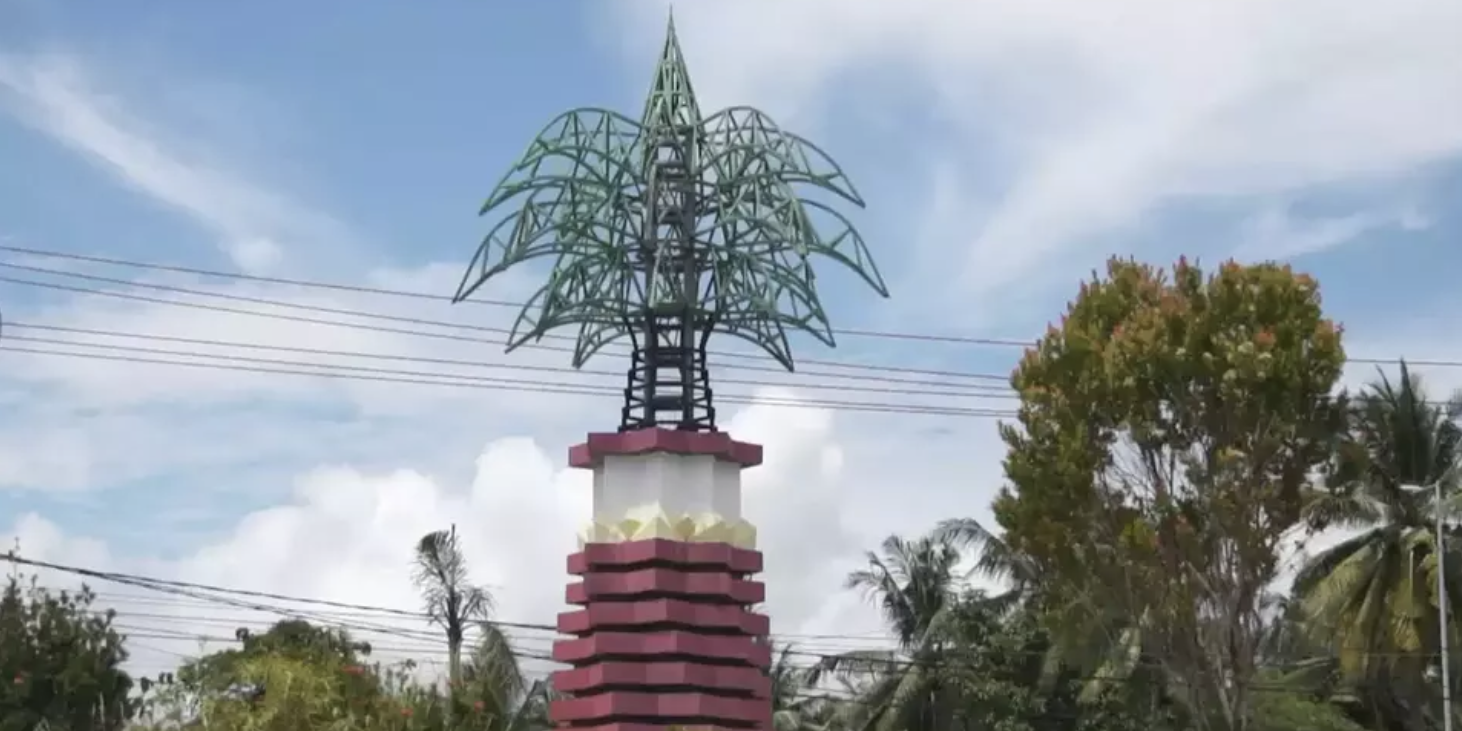Pasangkayu Regency in West Sulawesi has experienced rapid economic development in recent years, largely due to its thriving palm oil industry.
A palm tree monument in front of the regent’s office symbolizes the crucial role palm oil plantations have played in enhancing the welfare and economic development of Pasangkayu’s more than 200,000 residents.
Once a relatively obscure district in Mamuju Regency before its separation in 2004, Pasangkayu has transformed into a vibrant region. The bustling main roads are now lined with hotels, restaurants, minimarkets, banks, cafes, barbershops, car washes, and laundry services.
“It used to be very difficult to find a telecommunication shop here, but now we can sit anywhere and pick up the phone. The [telecommunication] infrastructure and network have been built here,” Regent Yaumil Ambo Djiwa said in a statement.
Yaumil is one of the key figures behind Pasangkayu’s separation from Mamuju, which was approved in 2004 under the name North Mamuju Regency. The name was later changed to Pasangkayu Regency in 2017, with the approval of President Joko Widodo, following requests from local community leaders.
Another influential figure is Yaumil’s younger brother, Agus Ambo Djiwa, who served as regent before him. During Agus’ tenure, the regency centered its economic activities around palm oil, and the iconic monument was constructed.
As economic prosperity has increased, so has the population of the young regency.
“The population growth has picked up pace since the separation of the regency began in 2003 — from only around 90,000 people to more than 200,000 today,” Saifuddin Baso, a member of the Pasangkayu Legislative Council, said in a statement.
Government data indicate that per capita income in the regency has also risen significantly, from around Rp 20 million a year to Rp 58 million. Pasangkayu now boasts the highest GDP in West Sulawesi.
Saifuddin recalled that after his election in 2004, he participated in a council team tasked with increasing the number of districts from four to twelve.
He attributed Pasangkayu’s rapid economic growth to the palm oil industry, which has become the main livelihood for the local community.
Provincial government data show that the agriculture, forestry, and fisheries sectors contributed 44.7 percent to West Sulawesi’s economic growth in 2023.
Economic professor Zudan Arif Fakrullah concurred.
“The main driver behind its economic growth is the boom in the palm oil sector — which includes crude palm oil and its derivatives — propelling the overall agriculture sector,” Zudan said.
However, Saifuddin noted that the rapid population growth has led to conflicts between residents and palm oil companies.
As an example, he pointed to ongoing disputes between subsidiaries of palm oil giant Astra Agro and farmers, who are mostly migrant residents, over palm plantations.
The 56-year-old Pasangkayu native emphasized that all licensed companies operating in the regency have met legal requirements and procedures stipulated by law, dismissing concerns that they are seizing land from residents.
Saifuddin suggested that disputes can be resolved through mediation or, if necessary, through legal channels for dignified and fair solutions.
He offered two solutions for these disputes: mediation and legal channels. He stressed the importance of a persuasive approach to resolving problems amicably and ensuring that any legal settlements are based on evidence, data, and facts in compliance with existing laws.
“These companies have produced their operating licenses, paid taxes to the state, and received official recognition. As a representative of the people, I don’t want to harm my constituents, but please acknowledge what is yours and don’t claim anything that isn’t. Let’s stay cool-headed because this regency cannot thrive if we disrupt investments,” he said.
Saifuddin noted that Astra Agro has been present in Pasangkayu since the late 1980s, even before the regency was established.
Source: Jakarta Globe
Disclaimer
This article may contain copyrighted material, the use of which may not have been pre-authorized by the copyright owner. This material is made available for the purpose of giving information and knowledge. The material contained on the Astra Agro website distributed without profit. If you are interested in using copyrighted material from this material for any reason that goes beyond ‘fair use’, you must first obtain permission from the original source.










